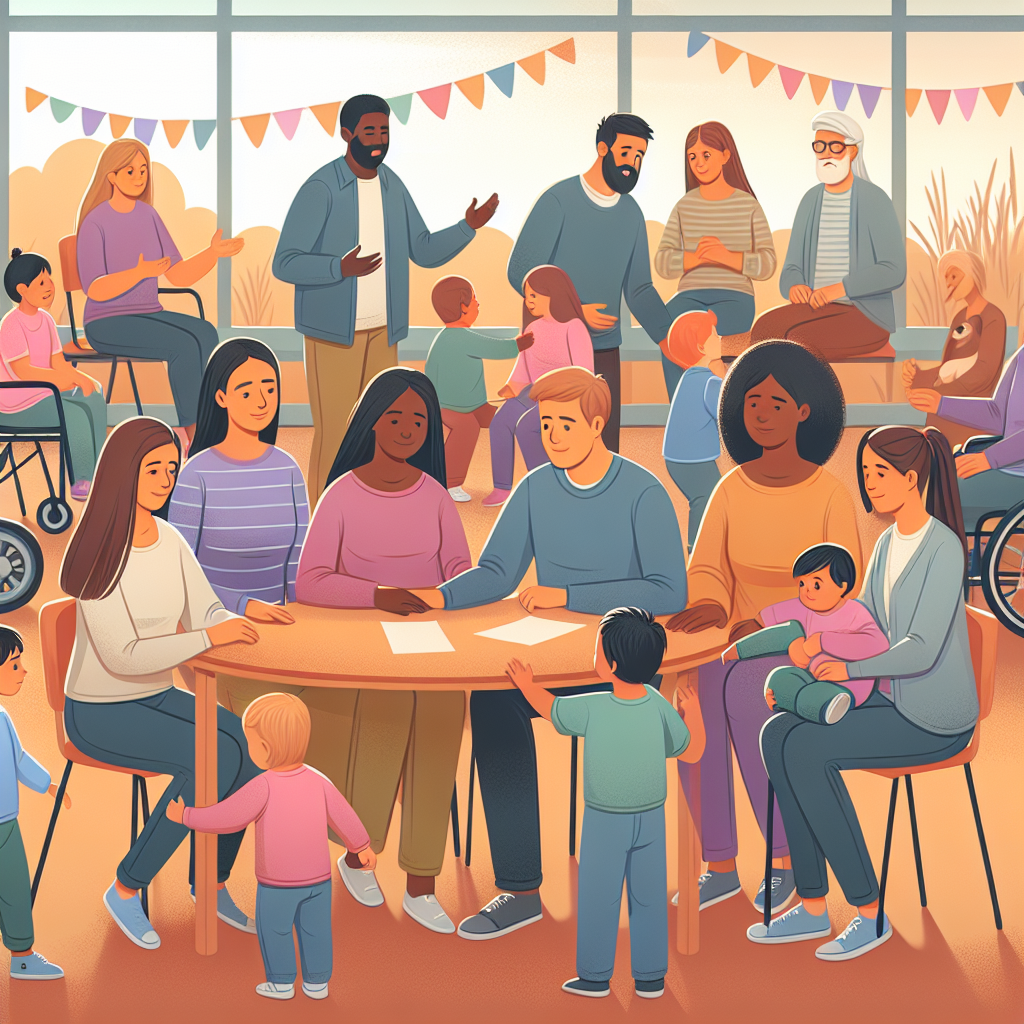
Raising Awareness: The Essential Role of Local Support Groups for Parents of Disabled Kids
Introduction
In a world increasingly marked by diversity, the experiences of families with disabled children remain rich and often overlooked. Raising awareness: the importance of local support groups for parents of disabled kids serves as a crucial call to action. As challenges multiply, so too does the need for community and connection amongst those navigating similar paths. This article explores the tremendous value that local support groups provide—not just emotional support, but practical resources, beneficial networks, and a sense of belonging for parents.
The journey of raising a disabled child is fraught with hurdles ranging from logistical obstacles to emotional turmoil. However, local support groups emerge as sanctuaries where parents find understanding, encouragement, and invaluable information. Join us as we delve into why raising awareness about these vital networks is so imperative.
Understanding the Landscape of Disability
Disabling Conditions: More than Meets the Eye
According to the World Health Organization, about 15% of the global population lives with a disability. In the United States alone, approximately 1 in 7 children aged 3 to 17 have a developmental disability, which can range from autism to cerebral palsy. These statistics highlight the sheer number of families affected by disabilities. Yet many parents find themselves isolated, experiencing guilt, frustration, and hopelessness.
Case Study: Emily’s Awakening
Emily is a mother of two who received a diagnosis of autism for her elder child, Liam. Initially, she felt overwhelmed, struggling to understand the complexities of her child’s needs. After hearing about a local support group, Emily decided to attend. There, she discovered not just friends, but educators and therapists willing to share their expertise. Through these connections, Emily learned better advocacy strategies for her child, circumventing bureaucratic hurdles that many parents face.
The Role of Local Support Groups
Community Connection: Bridging the Isolation Gap
One of the greatest challenges faced by parents of disabled children is isolation. The journey can often feel solitary, burdening parents with feelings of inadequacy. Local support groups directly counteract this isolation by fostering a sense of community.
Building Relationships
Support groups serve as a vital resource in establishing connections with other families facing similar challenges. Raising awareness: the importance of local support groups for parents of disabled kids emphasizes shared experiences that deepen empathy and understanding. Bonds formed at these gatherings can lead to lifelong friendships and invaluable partnerships.
| Benefits of Community Connection |
|---|
| Emotional Support |
| Resource Sharing |
| Advocacy Training |
| Peer Mentorship |
Information Sharing: Knowledge is Power
Arming parents with knowledgeable resources is another critical function of local support groups. These organizations often host workshops, bring in guest speakers, and facilitate discussions filled with insights on everything from navigating education systems to managing healthcare needs.
Case Study: The Monthly Meet-Up
Consider the local support group “Parents United,” which meets every first Thursday of the month. At one session, an occupational therapist provided tips on stimulating motor skills at home. A mother shared a free online resource for special education advocacy. Such shared knowledge arms parents with tools that can lead to immediate improvement in their child’s well-being.
Emotional and Psychological Health
Healing through Shared Experience
The emotional toll of raising a disabled child can be staggering. Parents often grapple with feelings of inadequacy, loneliness, or grief. Support groups serve as safe spaces where these feelings can be expressed and validated.
The Benefits of Group Therapy
Many local groups incorporate elements of group therapy, allowing parents to voice their struggles openly. The act of sharing individual experiences fosters healing, as others offer empathy and solutions. Research shows that parents engaged in support groups report reduced anxiety and improved mental health.
Case Study: Linda’s Transformation
Linda was struggling with anxiety after being overwhelmed by the demands of caring for her son with Down syndrome. She joined a support group and initially brought her fears to the table. Over time, she transitioned from being a quiet participant to leading discussions about managing self-care, positively influencing those around her.
Advocacy and Awareness
Becoming Advocates for Change
Local support groups play a pivotal role in advocacy, not only for individual families but for broader systemic changes. As members unite, they amplify their voices, pushing for necessary changes in local policies affecting education, healthcare, and community resources.
The Power of Collective Voice
The phrase "There’s strength in numbers" holds true; a coalition of parents has more influence than isolated voices. Many local support groups organize campaigns that can lead to significant changes in laws and resources beneficial for disabled children.
| Advocacy Initiatives | Impact |
|---|---|
| School Board Engagements | Improved IEP Processes |
| Awareness Campaigns | Increased Community Understanding |
| Fundraising for Local Resources | Enhanced Services |
Overcoming Barriers to Participation
Access and Awareness Issues
Despite their numerous benefits, many parents still face barriers to accessing local support groups. Geographic isolation, lack of knowledge, and cultural differences can limit involvement.
Strategies for Improvement
- Outreach Programs: Groups can engage in targeted outreach by visiting schools, clinics, and community centers.
- Online Communities: For families unable to attend in person, virtual support options can be a lifeline.
- Inclusivity Initiatives: Different cultural events can introduce parents from various backgrounds, reinforcing that everyone’s voice is important.
Conclusion
The conversation surrounding raising awareness: the importance of local support groups for parents of disabled kids is essential. These support networks can be life-changing—not just for parents, but for their children too. When families feel connected, informed, and empowered, everyone flourishes.
Through advocacy, knowledge sharing, emotional support, and community involvement, parents can navigate the challenges of raising disabled children with renewed hope and resilience. The journey may be long, but it is far less daunting when shared.
FAQs
1. How can I find a local support group for parents of disabled kids?
You can start by searching online directories, like the National Parent to Parent Network, or contacting local schools and community centers that may have resources.
2. What should I expect when attending my first support group meeting?
Expect a warm and welcoming environment. Meetings often start with introductions, followed by discussions or activities led by a facilitator.
3. Are there any costs associated with joining support groups?
Most support groups are free, although some may request a nominal fee for activities or special events.
4. Can support groups help with finding resources for my child?
Absolutely! One of the primary functions of support groups is to share valuable resources and information about therapies, educational strategies, and healthcare.
5. How can I contribute to my local support group?
You can bring your own experiences, help organize events, or even volunteer to lead discussions or workshops based on your expertise.
By recognizing and embracing the importance of local support groups for parents of disabled kids, we are taking crucial steps toward a more inclusive society. Every voice counts; let yours be heard.











